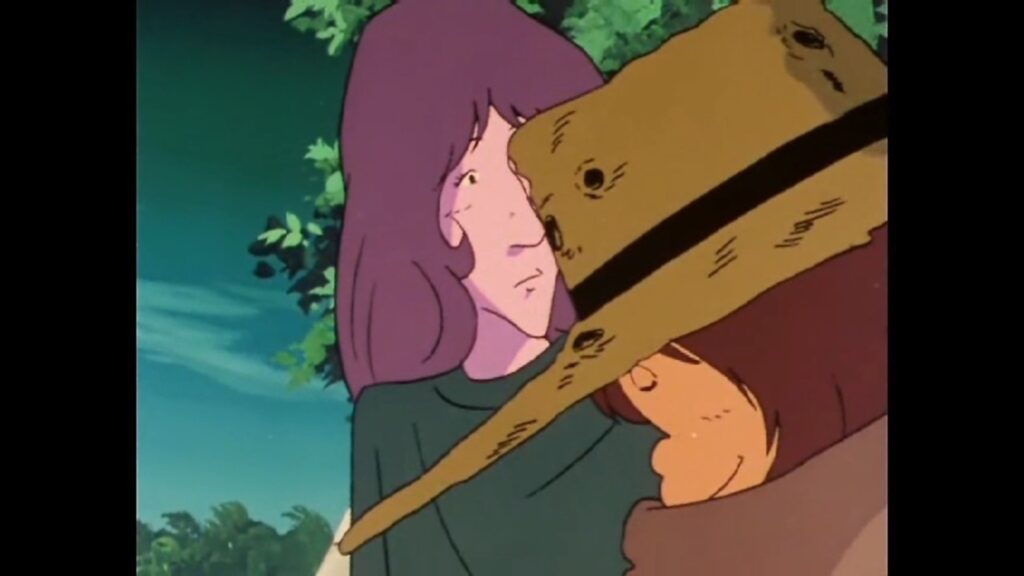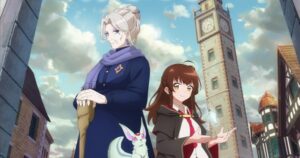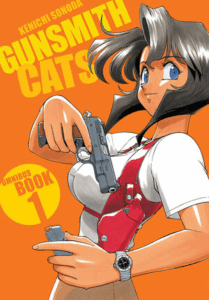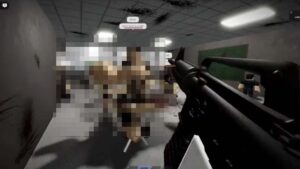Galaxy Express 999 – Episode 9

Hello folks, and welcome back to Wrong Every Time. Today I am thrilled to announce we’re returning to the ever-enchanting Galaxy Express 999, joining Tetsuro and Maetel on their ambiguous journey towards the outer reaches of the galaxy. Having become trapped in the “graveyard at the bottom of gravity” by the ambiguous Ryuz, Tetsuro was invited to join her on her lonely planet, and learned her tale of being briefly coveted and then swiftly discarded for her unchanging metal body. Trapped with only her regrets, she pleaded with Tetsuro to join her, and even offered him the mechanical body he covets – but Tetsuro declined, saying his future was still wide open, that he had much left to do in his own time, and that he would not accept a mechanical body at the cost of his own freedom.
Of course, as we’ve seen time and again, the freedom from mortality offered by a metal body heralds its own form of isolation. Those whose mortal bodies have been discarded seem equally trapped, frozen in a single moment, unable to change physically or emotionally. Metal bodies seem little more than tombstones in this world, markers signifying a vital human life that once was, but no longer. And what is freedom without the power and agency to truly change your destiny, anyway? Tetsuro travels the galaxy on a borrowed ticket, but is constantly reminded of those who lack such financial freedom, who scrape and bargain for a glimpse of the self-determination he so carelessly enjoys. The galaxy is full of dazzling wonders, but their forms cast heavy shadows, revealing a Kaiba-like vision of technological development where the injustices of society have been written directly onto our skin. Does Tetsuro understand the weight of his task, and when the time comes, will he truly be able to choose between Maetel and freedom?
Let us return to the stars.
Episode 9

“Trader Junction.” Alright, we might actually run into a living community this time! Two episodes spent in the graveyard at the bottom of gravity has probably earned us a little company
This big martial anthem OP has been increasingly reminding me of the original Mobile Suit Gundam’s chipper opening, offering a stirring call to action that is entirely undercut by the horrors that action entails
There’s really no way modern anime could replicate the overarching tonal ambiguity of ‘70s and ‘80s anime, because that ambiguity stems directly from being created by children of the war and post-war generation. Modern directors, writers, and animators haven’t spent their childhoods being inundated in messages regarding the ambiguity of human ambition and horrors of both war and reckless science, and are resultantly far more credulous when it comes to covering these topics. And this lack of perspective is further exacerbated by the “blind leading the blind” insularity of modern anime-adjacent writing; rather than drawing from independent passions and life experiences, they’re just drawing from prior anime-adjacent writing, with predictably diminishing returns

Apparently the planet they’re approaching is just named “Trader.” No need to overcomplicate things
As other trains soar off the planet, we learn this is actually a junction point for the galactic railways. Such a majestic, fantastical image – the idea of trains taking off into space feels like a common thread in our childhood subconscious, an idea that feels simultaneously magical and correct enough to resonate as something half-remembered from reality, or at least a reality adjacent to our own
They pass one train that’s been waterproofed for marsh regions, and another bustling with daily commuters. Space is both whimsical and mundane, full of secrets yet already yoked to capitalism

They’ve apparently got some time on this planet, stopping for two days and two hours
One of the transfer lines is called the “Capella Line,” which I assume is a reference to Campanella from Night on the Galactic Railroad, this story’s most direct inspiration
I like how the conductor makes all these announcements to a largely empty cabin, where the only two passengers have no chance of actually making a transfer. Sorta emphasizes how they’ve built this massive future infrastructure that largely exists for no one, a self-justifying act of scientific audacity. As I see the modern tech industry attempt to repeatedly sell us things like crypto or AI that no one needs and which actively make the world worse, I can appreciate the timelessness of this view of science and capitalism in concert

“Trader is a place where travelers meet and share stories, and new friendships blossom.” The true appeal of this planet is simply drawing close with other human beings, escaping for a moment the inherent loneliness of space travel
Of course, this episode is also reveling in a much more fundamental lesson: Trains Are Cool
Our final descent reveals the planet to harbor a genuine metropolis, conveyed through what looks like painted-over aerial photography
Right, I’d forgotten Tetsuro’s adorable cowpoke outfit, with straw hat and poncho

They head to a restaurant, where they bargain for real ramen as opposed to artificial. This gleaming city is a fake, and authenticity costs extra
Then a man attempts to sell Tetsuro a rifle. Everyone here is grifting
Maetel gestures towards the front window, where hungry figures stand peering in at their meal. The potential glamour of this city only emphasizes the distance between the haves and have-nots, while also underlining that even those who have acquired a ticket on the galaxy express are often otherwise impoverished, simply filling their bellies with water in order to stave off the hunger pangs. A precisely chosen detail that again emphasizes Matsumoto’s familiarity with the actual face of deprivation

“If I didn’t have my free pass and my allowance, I’d be one of them.” Tetsuro seizes the lesson immediately, realizing there is nothing meaningful separating him from these desperate people. We can only hope hard times lead us to seize on liberative politics and solidarity, rather than the insular, reactionary sociopathy that is the lure of the modern right
“I feel the smell of life, as if people really live here.” It is not the glimmering facade, but the hum of vital, ordinary life that makes this city feel comfortable and alive
Tetsuro is compelled by Maetel into taking a bath. Nice to see some genuine laughter from her; she normally seems hunched under the weight of her mysterious task, but Tetsuro can occasionally remind her of the lighter things in life

Maetel warns him about the hungry folks from before as she sends him off to find his own lunch. He has a good heart, but doesn’t fully understand what desperation can do to people, or what a vulnerable position he is in as well. The noble naivety of not recognizing injustice on a structural level, and thus feeling he can resolve it on a personal one
“I’d love to give them some food, but there are too many.” A practical demonstration of the problem at hand swiftly adjusts his perspective. Individual acts of charity are laudable, but he cannot fix this city, and attempting to with the resources at hand would likely put him in greater danger
For many, their first visit to a major city is their first experience with the scale of injustice our society facilitates, and our blasé acceptance of that injustice as an everyday fact of life. It’s easy to see how a locally-oriented philosophy of “communities work together to resolve challenges” might be fostered in a community that is nothing but local, but seeing how society actually functions at scale generally disabuses one of the idea that everyone “pitching in a little more” might resolve poverty and inequality

That, or it just makes one decide that cities are unique hotbeds of criminality filled with naturally criminally inclined people. I suppose for some, it is easier to rationalize the suffering of others as justice than to accept you live in an unjust world
Instead of eating, Tetsuro heads out to the tracks, watching the trains arrive and depart from this gilded beacon of inequality
He eventually finds a local ramen place, where the ramen is artificial but the company is nice. Even here, a former employee of the shop stops by the back entrance, asking after any leftover food
Tetsuro can’t save this city, but he can treat this woman to a nice meal. We live in an unjust world, but we can still make a difference here and there – “while I’m alive, I’ll make tiny changes to the earth,” as Frightened Rabbit put it

In spite of her limited expressions, it’s still easy to see this woman’s transformation from the huddled fear of being scammed or beaten to this earnest gratefulness at finding a kind soul
“You can’t just be nice to only one person.” Another would-be customer immediately tries to leech off Tetsuro’s charity, and then summons a whole hoard of compatriots when Tetsuro agrees. Poverty or desperation do not inherently convey virtue; everyone’s just trying to survive, and the more desperate you become, the more you’re willing to risk, and the more callous you have to become just to keep standing. Thus Tetsuro’s individual act of charity only stirs further complications

Of course, this isn’t a “moral failing” of those suffering deprivation – it’s just the natural behavior of people who don’t have the privilege of being accommodating. It’s the same dynamic Parasite speaks to in its discussion of the “softness” of rich people – those who could never possibly lose everything don’t need to grow skin thick enough to defend anything
He is rescued from his pursuers by the woman he intentionally fed. Fragmentary as it is, his charity has still brought him good fortune
She feels more at peace than she has in years, and Tetsuro is so comfortable he actually falls asleep, presumably seeing an echo of his mother in this kind, desperate woman

And Done
Thus our brave boy takes a brief rest, having faced off with both the glittering face of galactic splendor, as well as the deep shadows cast by that shining edifice. In a city like this, the collective bargain we apparently struck to consolidate wealth into the hands of the few is inescapable; every street corner reveals both the opulence of concentrated wealth and the tragedy of its absence. And in this place, our insufficiency as individual moral actors is made equally clear: we can no more right this injustice than we can tear down the towers that embody it, our powerlessness becoming its own form of fatigued complicity. But still, we cannot give up on empathy or justice, and we must continue to believe in our own individual acts of kindness, our occasional offerings of ports in the storm. We cannot slay the beast alone, but we can at least share our ramen when we get the chance.
This article was made possible by reader support. Thank you all for all that you do.








